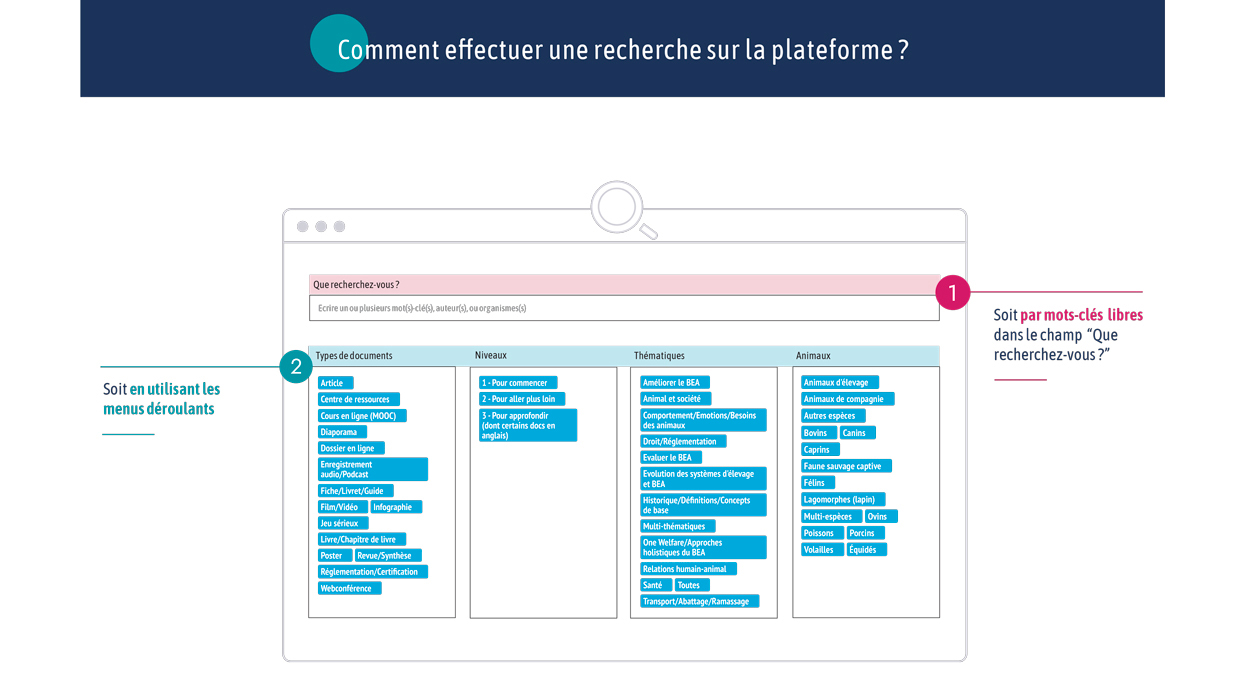Type de document : réponse de la Commission européenne à la question E-001752/2025
Auteurs : question : Marianne Vind (S&D). Réponse : Mr Várhelyi au nom de la Commission européenne
Question en français (traduction) : Poursuite des infractions au règlement sur les transports concernant la protection des animaux pendant le transport et les opérations connexes
L’article 25 du règlement (CE) n° 1/2005 impose aux États membres de prévoir et d’appliquer des sanctions efficaces en cas d’infraction aux règles relatives à la protection des animaux en cours de transport. Pour les voyages de longue durée, un carnet de route doit être établi et soumis à l’autorité du pays de départ dans un délai d’un mois après la fin du voyage concerné[1]. Les carnets de route permettent notamment d’identifier les infractions. Toutefois, le règlement ne précise pas comment les autorités doivent agir en cas d’infractions commises en dehors de leur juridiction. L’article 28 stipule seulement que la notification doit être faite aux autorités qui ont donné l’autorisation aux opérateurs de transport concernés, mais pas, par exemple, aux autorités des pays de transit. Les documents fournis par Animal Protection Denmark montrent que les affaires impliquant des entreprises étrangères sont généralement abandonnées, soit parce que le Danemark n’est pas compétent, soit en raison d’un manque de proportionnalité entre les ressources et la sanction attendue. Les informations disponibles suggèrent qu’il existe des pratiques similaires dans d’autres États membres.
A la lumière de ce qui précède :
1. La Commission dispose-t-elle d’une vue d’ensemble des poursuites engagées par les États membres dans ces affaires et considère-t-elle qu’il est compatible avec le droit communautaire[2] que les États membres n’engagent pas de poursuites dans de telles situations ?
2. Comment les États membres doivent-ils s’acquitter des obligations qui leur incombent en vertu du droit communautaire à cet égard ?
3. La Commission a-t-elle l’intention d’engager des procédures d’infraction à l’encontre des États membres qui n’engagent pas de poursuites, ou quelles mesures envisage-t-elle d’introduire dans la prochaine révision du règlement sur les transports afin de garantir que les infractions établies sur la base des carnets de route soient poursuivies indépendamment du lieu où elles ont été commises et du lieu d’établissement des transporteurs ?
Réponse en français (traduction) : 1. La législation communautaire actuelle sur la protection des animaux en cours de transport[1] impose aux États membres d’imposer des sanctions si nécessaire. Les États membres publient régulièrement un aperçu de leurs mesures d’exécution, mais ces informations ne sont pas suffisamment détaillées pour permettre à la Commission d’identifier des cas spécifiques, tels que les sanctions imposées à la suite de la notification d’une infraction par le biais d’un carnet de route.
2. Conformément au règlement relatif aux contrôles officiels (RCO)[2], il incombe aux États membres de prendre les mesures appropriées en cas de non-conformité établie par leurs contrôles fondés sur les risques, y compris les contrôles des feuilles de route soumises dans un délai d’un mois après l’achèvement du voyage concerné. Dans le cas d’un manquement qui concerne plus d’un État membre, le RCO contient des règles et des procédures détaillées en matière d’assistance et de coopération administratives, qui prévoient notamment d’informer l’autorité compétente de l’État membre concerné[3]. La Commission a récemment lancé un module de bien-être animal du système d’alerte rapide pour les denrées alimentaires et les aliments pour animaux (iRASFF), qui constitue l’outil informatique que les États membres doivent utiliser pour mettre en œuvre certaines dispositions du RCO relatives à l’assistance et à la coopération administratives[4]. L’enregistrement d’un cas de non-conformité dans ce module oblige les États membres notifiés à prendre certaines mesures obligatoires[5], y compris des mesures visant à garantir le respect des règles relatives à la protection des animaux en cours de transport.
3. Dans sa proposition de règlement relatif à la protection des animaux en cours de transport, la Commission introduit une nouvelle approche visant à harmoniser les sanctions en cas d’infraction aux règles sur le transport des animaux[6]. Le débat se poursuit. La Commission reste disposée à travailler avec les colégislateurs dans ce domaine.
Question en anglais (original) : Article 25 of Regulation (EC) No 1/2005 requires Member States to lay down and enforce effective penalties for infringements of the rules on the protection of animals during transport. For long journeys, a journey log must be drawn up and submitted to the authority of the country of departure within one month after the journey concerned has been completed[1]. Logs identify infringements in particular. However, the regulation does not specify how authorities should act in the event of infringements outside their jurisdiction. Article 28 only stipulates that notification must be given to authorities that gave authorisation to the transport operators concerned, but not, for example, to authorities in transit countries. Documents provided by Animal Protection Denmark show that cases involving foreign firms are usually dropped, either because Denmark does not have jurisdiction or because of a lack of proportionality between resources and the expected penalty. The information available suggests that there are similar practices in other Member States.
In the light of the above:
1. Does the Commission have an overview of Member States’ prosecutions in these cases, and does the Commission regard it as compatible with EU law[2]for Member States not to prosecute in such situations?
2. How should Member States fulfil their obligations under EU law in this respect?
3. Does the Commission intend to bring infringement proceedings against Member States that fail to prosecute, or what measures is the Commission considering introducing in the forthcoming revision of the Transport Regulation so as to ensure that infringements established on the basis of return journey logs are prosecuted regardless of where they are committed and of where transport operators are based?
[1] See Annex II, point 8.
[2] Including Article 25 of the Transport Regulation and the duty of loyalty under Article 4(3) TFEU.
Réponse en anglais (original) : 1. Current EU legislation on the protection of animals during transport[1] requires Member States to impose penalties if necessary. An overview of their enforcement actions is regularly made publicly available by Member States, but this information is not detailed enough for the Commission to identify specific cases, such as penalties imposed following the notification of infringement through a journey log.
2. According to the Official Controls Regulation (OCR)[2], it is the responsibility of Member States to take the appropriate actions in the event of non-compliances established by their risk-based controls, including controls of journey logs submitted within one month after the journey concerned has been completed. In the case of a non-compliance that concerns more than one Member State, the OCR contains detailed rules and procedures for administrative assistance and cooperation, which require, among others, to inform the competent authority of the Member State concerned[3]. The Commission has recently launched a Rapid Alert System for Food and Feed (iRASFF) animal welfare module, which constitutes the IT tool that Member States must use to implement certain provisions of the OCR on administrative assistance and cooperation[4]. Filing a non-compliance in this module requires the notified Member States to take certain obligatory actions[5], including actions to ensure compliance with the rules on the protection of animals during transport.
3. In its proposal for a regulation on the protection of animals during transport, the Commission introduces a new approach to harmonise sanctions in case of infringements of the rules on animal transport[6]. The debate is ongoing. The Commission remains open to work with the co-legislators in this area.
[1] Council Regulation (EC) No 1/2005 of 22 December 2004 on the protection of animals during transport and related operations, OJ L 3, 5.1.2005, p. 1-44.
[2] Regulation (EU) 2017/625 of the European Parliament and of the Council of 15 March 2017 on official controls and other official activities performed to ensure the application of food and feed law, rules on animal health and welfare, plant health and plant protection products (Official Controls Regulation), OJ L 95, 7.4.2017, p. 1-142.
[3] See in particular Title IV of the Official Controls Regulation.
[4] In particular, Articles 105 and 106 of the Official Controls Regulation.
[5] Article 50 of Regulation (EC) No 178/2002 of the European Parliament and of the Council of 28 January 2002 laying down the general principles and requirements of food law, establishing the European Food Safety Authority and laying down procedures in matters of food safety and Articles 102 to 108 of Regulation (EU) 2017/625.
[6] Chapter IX ‘Sanctions’, Proposal for a regulation of the European Parliament and of the Council on the protection of animals during transport and related operations, COM/2023/770 final.

Extrait du site du Parlement européen





